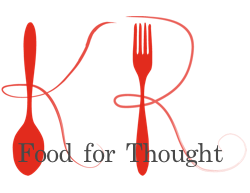Babies are born learners and explorers. They find joy in exploring and mastering a skill. Babies are driven to do this and will learn and explore with food if we give them the opportunity to do so at their own pace. If we let this joy flourish and let them feel confident and successful, they will have a positive relationship with food that will last a lifetime. This is especially true for the more reticent feeder, who may never eat vigorously for the sheer love of it, but who will learn to eat what she or he needs and enjoy it. It holds true for all babies. Often the more we push them to eat or stop eating, the less likely they are to do so.
With this in mind, I'll offer my tips for baby led spoon feeding. Spoon feeding is primarily an adult let activity and can easily lead to a disconnect between patent and child's communication if we aren't proactive about being "tuned-in". These tips are focused on making spoon feeding an interactive dance or a conversation.
- Let your baby take the lead by giving him or her a spoon to hold from the very beginning.
- Expect the activity to get messy and be ok with that. Mess is fun and it enriches the sensory experience. Your baby is learning a new skill and she can't do it perfectly from the start. If your baby isn't getting messy that means you're controlling the activity and doing it for them, which means your baby is not learning as much and probably not enjoying it as much.
- Forget about quantity. Let the focus be on exploration and discovery, even if that means that zero amounts of food is actually swallowed or even tasted.
- Try loading the spoon for your baby at first, then just set it on the table, handle towards your baby. Let your baby pick it up and do whatever she or he wants with it!
- If your baby is struggling and appears interested, hold and offer the spoon directly to your baby. Keep the spoon near your baby's mouth and wait. Do not touch your baby's lips or try to put it in his or her mouth. Just wait until your baby opens his or her mouth or leans towards the food. If that never happens, eat the food yourself and let your baby just watch or touch the food if interested.
- At all meals, try to have your own spoon and bowl of food to eat. Model eating and enjoy a meal with your baby. Babies and children learn best from watching you. They want to do what you're doing. If he is eating applesauce, you should eat applesauce.
- If your baby is into the food and the activity, re-load the spoon and offer it again.
- If not, let him or her enjoy time at the table, touching and playing with the food with his or her hands while you eat. Do not stress or worry. Offer a milk feed (breastmilk or formula) instead.






